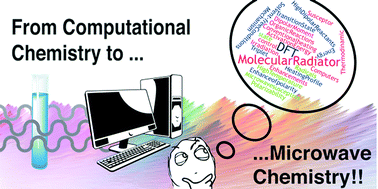Understanding MAOS through computational chemistry
Abstract
The importance of microwave irradiation in organic synthesis today is unquestionable, but in many cases the nature of these improvements remains unknown. Exploiting the benefits that microwave irradiation has in chemistry is still hindered by a lack of understanding of the physical principles of the interaction of microwave irradiation with the components of a reaction. Moreover, dielectric properties vary with temperature and along the reaction coordinate and this makes the situation more complex. Experimental determinations employed to date in Microwave-Assisted Organic Chemistry (MAOS) are characterized by the importance of thermal heating. In this way the separation of thermal heating from any other effect of electromagnetic radiation is completely impossible. This review provides an overview of the use of Computational Chemistry in MAOS to provide a theoretical understanding of the factors that can be used to explain the improvements in MAOS and how computational calculations can be used as a predictive tool.



 Please wait while we load your content...
Please wait while we load your content...